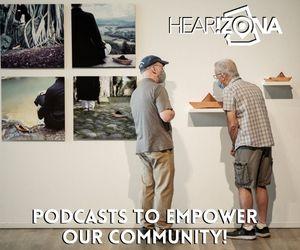Click to Listen:
Stemme wins $1,000,000 Nilsson prize;
Baroque Lives on in Bolivian Jungle
It’s This Week in Classical Music, an update on what’s happening in the classical music world; I’m Randy Kinkel.
Swedish soprano Nina Stemme has won the 2018 Birgit Nilsson Prize. The award includes a $1 million dollar cash prize, the largest given in classical music. Stemme is the fourth recipient of the award since it was established in 2009.
A ceremony honoring the soprano will take place on October 22 at the Royal Opera House in Stockholm, Sweden. King Carl Gustaf and Queen Silvia will formally present the prize.
“It is a great honor to be recognized for my work, but it is even greater to be recognized in my home country by a world-renowned organization that bears the name and carries the legacy of a legend … my idol Birgit Nilsson,” Stemme said in a statement. “As this is her centenary, receiving this award becomes a most humbling and extraordinary honor. I am very grateful to be connected with this great lady.”
The Birgit Nilsson Prize is given every two to three years to artists that have made major contributions to the fields of opera or concert performance, selected by an international panel of music professionals. The 2018 Nilsson Prize also kicks off a year-long celebration of Birgit Nilsson’s centenary.
In a remote Bolivian jungle town, a music school teaches children 300 year old sonatas written by Jesuit priests. Near the borders of Brazil and Paraguay, harpsichords and lutes can be found in the smallest villages. Luthiers have carved violins from local cedar and mahogany for centuries.
How could this be?
It’s the legacy of Jesuit missionaries who left a musical time capsule in Bolivia. The Jesuits came to the jungle in the 1700s with two goals: converting indigenous tribes and sheltering them from the slave trade. “It was about building a different society, a kind of utopia with education, self-sustainability — and music, which was the way the Jesuits evangelized,” said Rev. Piotr Nawrot, a Roman Catholic priest from Poland who lives in Bolivia.
Many of the era’s songs had been passed down orally through families in Bolivia, but the orchestrations and choral works were thought to be lost, until the 1990s, when Father Nawrot went looking for whatever remained of the Jesuits’ music—and found a treasure trove of thousands of pages of manuscripts—everything from baroque operas to concertos for solo instruments, which had survived since the 1700s.
That body of work is now known in classical music circles as Mission Baroque. Ashley Solomon, a professor at the Royal College of Music in London is astonished with the way the Bolivians kept up the musical tradition of the 18th century and made it part of their culture. “They took this music and made it their own — it’s more upbeat, more positive,” Solomon said. “The music lifts the soul.”
For more on these and other items and events, go to the website, K-B-A-C-H dot org; Be listening each week at this time for another update. Follow us on Facebook and twitter, and also listen every weekday at Noon for the Most Wanted Hour with Linda Cassidy, playing your top 100 classical hits. I’m Randy Kinkel for KBACH’s “This Week in Classical Music”; Member supported 89.5 KBAQ Phoenix and HD, a service of Rio Salado College and Arizona State University.










